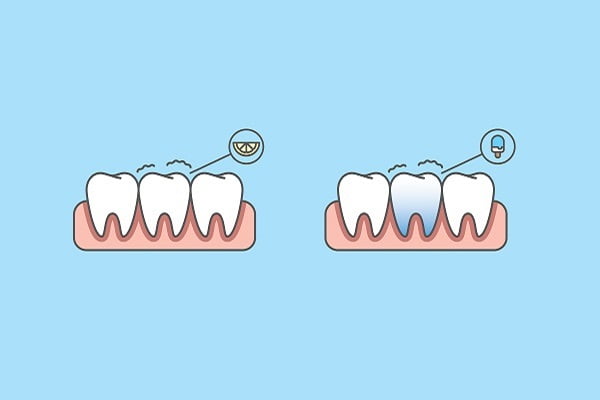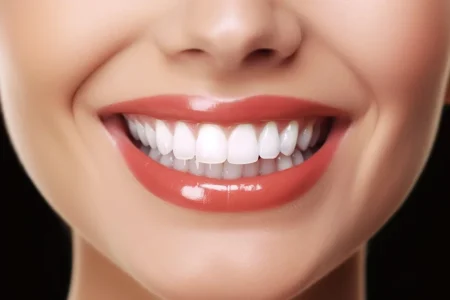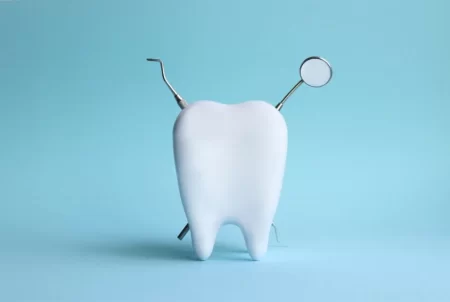Why Are My Teeth Sensitive All of a Sudden?
- Updated on: Jul 9, 2024
- 3 min Read
- Published on Sep 27, 2019

Tooth sensitivity is typically caused by dentin on root areas exposed due to retreated gums. Sudden tooth sensitivity, also referred to as dentin hypersensitivity, may be caused by several factors and may come and go sooner or later. Classically, the most common symptom of tooth sensitivity is a darting pain while consuming products that are hot, cold, sweet, or particularly acidic. Since this might begin as simply a slight irritation, this sudden sensitivity onset may get worse with time. Therefore, it is recommended to schedule an appointment with a healthcare professional before severe complications arise.
What Leads to Sudden Tooth Sensitivity?
From masticating on ice to applying whitening treatments, numerous things may give rise to sudden tooth sensitivity that may lead to abrupt discomfort. If an individual suddenly feels a shocking pain in the teeth, it’s the time to examine his/her oral health.
Determining the Cause of Sudden Tooth Sensitivity
According to a study, tooth sensitivity may affect people of any age or sex. It was found that women and young adults (17 to 45 years of age) with receding gums have a propensity to report the most tooth sensitivity. There are several dental conditions that may cause sudden tooth sensitivity. Most of them involve the loss of protective covering over the dentin (the hard tissue that makes up the bulk of all teeth). To determine the exact cause of sudden onset of tooth sensitivity, one needs to know about the factors that can lead to the flashes of pain in the tooth.
Key factors responsible for sudden tooth sensitivity are:
Diet
Consuming hard or acidic foods may harm the teeth. Acidic foods give rise to enamel reduction. Fruit drinks or juices, citrus fruits, and sports drinks may contribute to tooth sensitivity.
Tooth whitening treatment
Tooth whitening treatment contains harsh chemicals that eliminate stains, but they may also remove the enamel covering leading to tooth sensitivity. Sensitivity may be a temporary side effect of a whitening treatment, but it may also result from using overly harsh whitening products or whitening teeth therapy too frequently.
Harsh brushing
Rough brushing technique or using hard-bristled toothbrush may increase tooth sensitivity. This may wear down enamel. As a result, dentin becomes exposed or gives rise to gum recession.
How to Ease Tooth Sensitivity Naturally?
Tooth decay
Even a small cavity may eat away enough tooth enamel to expose dentin and cause sensitivity.
Problems affecting your gums
Toothbrush abrasion, excessive flossing, and gum disease can all lead to gum-related tooth sensitivity. Gum recession and gingivitis are gum related problems. These often occur in people suffering from periodontal disease, and expose the root of the teeth.
Cracked teeth
If you experience stimulating sensation when you bite down, it may indicate cracked teeth. These may be filled with bacteria from plaque and may give rise to inflammation in the pulp of the teeth. In severe cases, it may cause abscess and infection.
Dental procedure
Teeth may become sensitive after professional dental cleaning, such as, root canal treatment, crown replacement, and other dental restoration procedures. Usually, the pain may disappear in 3 to 5 weeks. One may experience sensitivity even after the dental procedure.
Digestive disorders
The repeated spew associated with bulimia (eating disorder) leads to stomach acids eroding away at the surface of the teeth and exposes dentin, leading to sudden tooth sensitivity.
Use of mouthwash
Some mouthwashes contain acids. If the dentin is exposed by the acids, it may make existing tooth sensitivity worse and may damage the dentin layer.
Cold weather
Cold air flowing over your teeth may trigger a stimulus sensation.
With so many possible causes of sudden tooth sensitivity, it is highly recommended to work with the healthcare professional to address sensitivity, both to find the cause and create a treatment plan. Some possible solutions may include:
- an over-the-counter desensitizing toothpaste
- fluoride treatment











